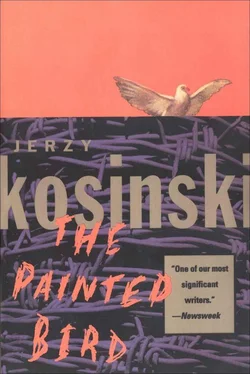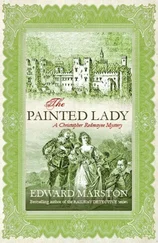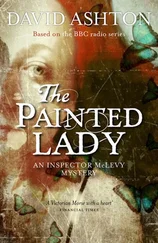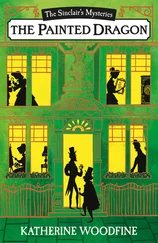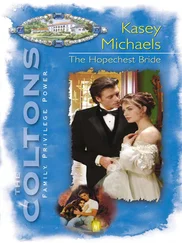Jerzy Kosiński - The Painted Bird
Здесь есть возможность читать онлайн «Jerzy Kosiński - The Painted Bird» весь текст электронной книги совершенно бесплатно (целиком полную версию без сокращений). В некоторых случаях можно слушать аудио, скачать через торрент в формате fb2 и присутствует краткое содержание. Год выпуска: 1965, ISBN: 1965, Жанр: Детская проза, на английском языке. Описание произведения, (предисловие) а так же отзывы посетителей доступны на портале библиотеки ЛибКат.
- Название:The Painted Bird
- Автор:
- Жанр:
- Год:1965
- ISBN:978-0-8021-9575-3
- Рейтинг книги:4 / 5. Голосов: 1
-
Избранное:Добавить в избранное
- Отзывы:
-
Ваша оценка:
- 80
- 1
- 2
- 3
- 4
- 5
The Painted Bird: краткое содержание, описание и аннотация
Предлагаем к чтению аннотацию, описание, краткое содержание или предисловие (зависит от того, что написал сам автор книги «The Painted Bird»). Если вы не нашли необходимую информацию о книге — напишите в комментариях, мы постараемся отыскать её.
The Painted Bird — читать онлайн бесплатно полную книгу (весь текст) целиком
Ниже представлен текст книги, разбитый по страницам. Система сохранения места последней прочитанной страницы, позволяет с удобством читать онлайн бесплатно книгу «The Painted Bird», без необходимости каждый раз заново искать на чём Вы остановились. Поставьте закладку, и сможете в любой момент перейти на страницу, на которой закончили чтение.
Интервал:
Закладка:
I stretched the canvas over my head, trying to catch every turbulence as I moved straight ahead toward the setting sun. When I had almost given up hope, I noticed the outlines of thatched roofs. A few moments later, when the village was clearly visible, I saw a gang of boys approaching on skates. Without my comet I was afraid of them and tried to cut away at an angle, aiming at the outskirts of the settlement. But it was too late; they had already noticed me.
The group headed in my direction. I started running against the wind, but I was out of breath and could hardly stand on my legs. I sat on the ice grasping the handle of the comet.
The boys came closer. There were ten or more. Swinging their arms, supporting one another, they progressed steadily against the wind. The air threw their voices back; I could hear nothing.
When they were quite close they split into two groups and surrounded me cautiously. I huddled on the ice and covered my face with the canvas sail, hoping they might leave me alone.
They encircled me with suspicion. I pretended not to notice them. Three of the strongest came closer. “A Gypsy,” one said, “a Gypsy bastard.”
The others stood by calmly, but when I tried to get up they jumped on me and twisted my arms behind my back. The group became excited. They beat me on the face and stomach. Blood froze on my lip and closed one eye. The tallest one said something. The others seemed to agree enthusiastically. Some held me by the legs, others started pulling off my pants. I knew what they wanted to do. I had seen a band of cowherds raping a boy from another village who happened to wander into their territory. I knew that only something unforeseen could save me.
I allowed them to take off my pants, pretending I was exhausted and could not fight any more. I guessed that they would not take off my boots and skates because they were too firmly attached to my feet. Noticing that I was limp and did not resist, they relaxed their grip. Two of the biggest crouched by my bare abdomen and struck me with frozen gloves.
I tensed my muscles, withdrew one leg slightly, and kicked one of the boys bending over me. Something cracked in his head. At first I thought it was the skate, but it was whole when I jerked it out of the boy’s eye. Another one tried to grab me by the legs; I kicked him across the throat with the skate. The two boys fell on the ice, bleeding profusely. The rest of the boys panicked; most of them started dragging the wounded boys toward the village, leaving a bloody trail on the ice. Four stayed behind.
These pinned me down with a long pole used for fishing in ice holes. When I ceased struggling they dragged me toward a nearby hole. I resisted desperately at the edge of the water, but they were ready. Two of them widened the hole and then they all heaved together, pushing me under the ice with the pointed end of the pole. They tried to make sure that I could not emerge.
The icy water shut over me. I closed my mouth and held my breath, feeling the painful thrust of the spike pushing me under. I slid underneath the ice, and it rubbed my head, my shoulders, and my bare hands. And then the pointed pole was bobbing at my fingertips, no longer being jabbed into me, for the boys had let go of it.
The cold encased me. My mind was freezing. I was sliding down, choking. The water here was shallow, and my only thought was that I could use the pole to push against the bottom and lift myself to the ice-cut. I grabbed the pole and it supported me as I moved along underneath the ice. When my lungs were nearly bursting and I was ready to open my mouth and swallow anything, I found myself near the ice-cut. With one more push my head popped out and I gulped air that felt like a stream of boiling soup. I caught the sharp rim of the ice, holding on to it in such a way as to be able to breathe without emerging too often. I did not know how far the boys had gone, and I preferred to wait a while.
Only my face was still alive; I could not feel the rest of my body: it seemed to belong to the ice. I made efforts to move my legs and feet.
I peered over the edge of the ice and saw the boys disappearing in the distance, and diminishing with each step they took. When they were far enough away, I climbed to the surface. My clothes froze solid and crackled at every movement. I jumped up and down and stretched my stiff legs and arms and rubbed myself with snow, but warmth returned only for a few seconds and then vanished again. I tied the ragged remains of my pants to my legs and then pulled the pole out of the ice hole and leaned heavily on it. The wind struck me sideways; I had trouble keeping my direction. Whenever I weakened, I put the pole between my legs and pushed on it, as though riding on a stiff tail.
I was slowly moving away from the huts, toward a forest visible in the distance. It was very late afternoon and the brownish disk of the sun was cut by the square shapes of roofs and chimneys. Every gust of wind robbed my body of precious remnants of warmth. I knew that I must not rest or stop even for a moment until I reached the forest. I began to see the pattern of bark on the trees. A frightened hare jumped from under a bush.
When I reached the first trees my head was spinning. It seemed to be midsummer, and the golden ears of wheat were waving over my head and Ewka touched me with her warm hand. I had visions of food: a huge bowl of beef seasoned with vinegar, garlic, pepper and salt; a pot of coarse gruel thickened with pickled cabbage leaves and pieces of succulent fat bacon; evenly cut slices of barley bread soaked in a thick borscht of barley, potatoes, and corn.
I took another few steps over the frozen ground and entered the woods. My skates caught on roots and bushes. I stumbled once and then sat on a tree trunk. Almost immediately I started sinking into a hot bed full of soft, smooth, warmed pillows and eiderdowns. Someone leaned over me, I heard a woman’s voice, I was being carried somewhere. Everything dissolved into a sultry summer night, full of intoxicating, moist, fragrant mists.
14
I woke on a wide low bed nestled against the wall and covered with sheepskins. It was hot in the room and the flickering light of a thick candle revealed a dirt floor, chalky-white walls, and a thatched roof. A cross hung from the chimney-piece. A woman sat staring into the high flames of the fire. She was barefoot, in a tight skirt of coarse linen. Her jerkin of rabbit pelts with many holes was unbuttoned to the waist. Noticing that I was awake she approached and sat down on the bed, which groaned under her weight. She lifted my chin and looked attentively at me. Her eyes were watery blue. When she smiled, she did not cover her mouth with her hand as was customary here. Instead, she displayed two rows of yellowish, uneven teeth.
She spoke to me in a local dialect which I could not fully understand. She persisted in calling me her poor Gypsy, her little Jewish foundling. At first she would not believe that I was a mute. Occasionally she looked inside my mouth, rapped my throat, tried to startle me; but she soon stopped when I stayed silent.
She fed me hot thick borscht and carefully inspected my frozen ears, hands, and feet. She told me her name was Labina. I felt safe and contented with her. I liked her very much.
In the daytime Labina went out to work as a domestic to some of the richer peasants, especially to those with sick wives or too many children. Often she took me along so I could have a decent meal, although it was said in the village that I should be delivered to the Germans. Labina replied to such remarks with a torrent of curses, shouting that all were equal before God and that she was no Judas to sell me for silver coins.
In the evenings Labina used to receive guests in her hut. Men who managed to get out of their houses came to her hut with bottles of vodka and baskets of food.
Читать дальшеИнтервал:
Закладка:
Похожие книги на «The Painted Bird»
Представляем Вашему вниманию похожие книги на «The Painted Bird» списком для выбора. Мы отобрали схожую по названию и смыслу литературу в надежде предоставить читателям больше вариантов отыскать новые, интересные, ещё непрочитанные произведения.
Обсуждение, отзывы о книге «The Painted Bird» и просто собственные мнения читателей. Оставьте ваши комментарии, напишите, что Вы думаете о произведении, его смысле или главных героях. Укажите что конкретно понравилось, а что нет, и почему Вы так считаете.
